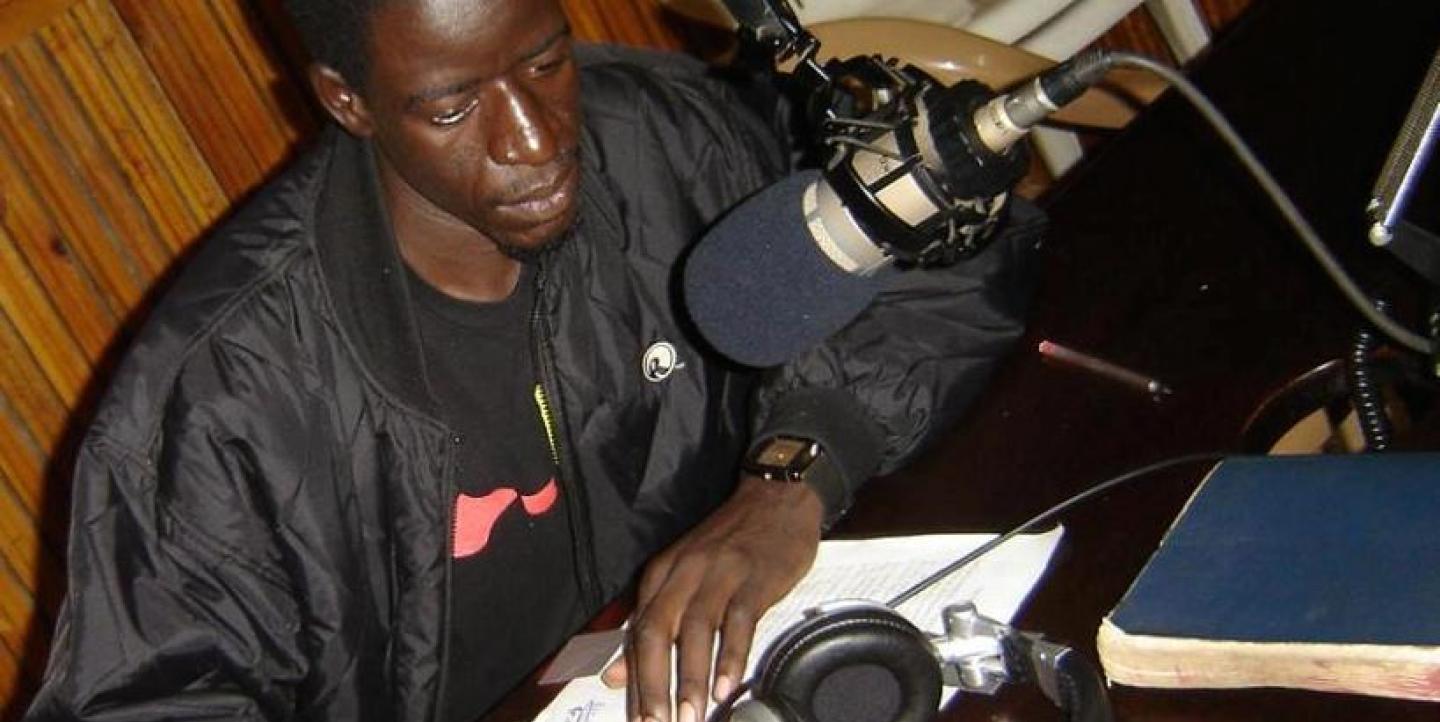Each month, IJNet features an international journalist who exemplifies the profession and has used the site to further his or her career. If you would like to be featured, email a short bio and a paragraph about how you have used IJNet here.
This month we feature independent journalist Pat Robert Larubi, who is part of the Acholi tribe in Northern Uganda’s Gulu district. Larubi has worked at a number of local media houses, in radio, television and print. Last year, he joined NTV as a correspondent news reporter for the Acholi sub region. He also began contributing stories to the Daily Monitor as a freelance journalist.
As northern Uganda emerges from two decades of war, most of Larubi’s work focuses on the post-war recovery process.
“Even five years since peace returned to northern Uganda...people continue to experience silent battles related to land grabbing, gender-based violence, alcoholism, lack of education, repatriation, missing child soldiers and farming,” he told IJNet.
Larubi is also an advocate for Uganda's Human Rights Network for Journalists (HRNJ), where he fights against the mistreatment of journalists by police.
How has IJNet helped you?
I use IJNet to improve my journalistic skills, including basic news writing and reporting. I have accessed grant opportunities and scholarships and [learned about] news reporting tools, like how to use a smartphone to report a breaking news story.
Through IJNet, I learned of clippings.me, where I developed my personal portfolio visited by hundreds of people looking for news and information updates from Uganda. It’s beyond an ordinary blog, and this innovation is superb for me and other practicing journalists.
In April 2014, I [received] the Thomson Reuters Foundation full grant scholarship to undergo television training (in the UK). The award was an inspiration. I also got an opportunity to undergo oil and gas training for Albertine-based news reporters by the African Centre for Media Excellency (ACME), as advertised on IJNet. All these engagements would not have been possible if not for IJNet.
You work in print, television and radio. How do you manage all three platforms?
I learned these skills in school. [I'm a 2009 graduate of the] United Media Consultants and Trainers [MCAT] school of journalism and mass communication, where I engaged in practical camera work, radio and news writing and reporting.
Last year, I decided to go solo as an independent freelancer journalist. This is a virgin field that most Ugandans have not yet thought of tapping into. I see freelancing as the only sure way to beat the probability of unemployment. Often, contracted journalists must work only for their particular media house, challenged by low pay coupled with exploitative terms and conditions.
I pitch to different editors who approve and give me a go-ahead to gather more details, write or script [for TV or radio]. My geographical region of coverage gives me a more comparative story advantage, as my stories are exclusive in nature and not duplicated, which would be the case of stories covered by several media houses within a particular area or from press releases or seminars.
My direct field engagement enables me to come out with unique and marketable story leads based on real issues affecting the common man.
What advice would you give to aspiring journalists?
Aspiring journalists should exploit the numerous opportunities available, so as to fully practice and develop their career. Journalism is all about creativity; if you are not creative and innovative in the way you think and write, then you are out of business.
In Uganda, editors, sub-editors or bureau chiefs tend to sit on news stories (delaying publication). To me, this is an obstacle, as it blocks the ability of the future journalist to shine in the profession. Editors should look at where they came from. For journalists continuously ignored in their reporting, I urge them to utilize social sites and other online opportunities like blogging to break the iceberg of thinking.
Uganda has passed a number of laws that criminalize freedom of expression, like the anti-homosexuality act, with the clause of compulsory disclosure; the public order management act; and the anti-pornography act, commonly known in Uganda as the mini-skirt law. [These laws] stifle, restrict and curtail the enjoyment of freedom of expression as guaranteed by the 1995 Constitution of the Republic of Uganda. As these laws continue to prevail, there is a need to remain professional and equipped to demand press freedom and justice.
Image: Pat Robert Larubi in a radio discussion program. Courtesy of Pat Robert Larubi.

